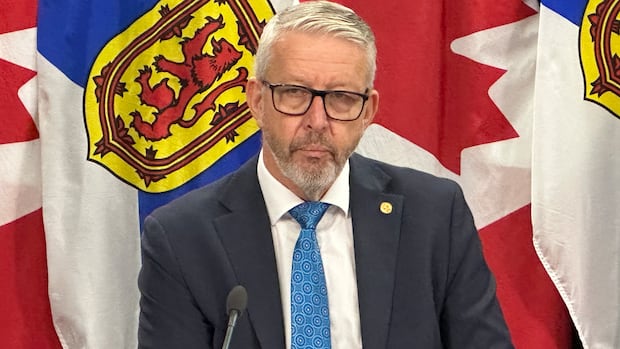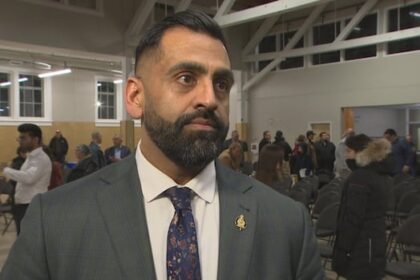Nova Scotia·NewThe Nova Scotia government issued a directive on Monday that departments and other government entities are only allowed to fill one vacancy for every two full-time equivalent openings they have on their books. As a job is filled, the second unfilled position will be removed from the department’s budget.Finance Minister John Lohr says move is in response to provincial deficitMichael Gorman · CBC News · Posted: Nov 10, 2025 3:46 PM EST | Last Updated: 41 minutes agoListen to this articleEstimated 3 minutesThe audio version of this article is generated by text-to-speech, a technology based on artificial intelligence.Finance Minister John Lohr says the new hiring directive is a way to help contend with the provincial deficit without mass layoffs or cuts. (Dave Laughlin/CBC)The Nova Scotia government issued a directive on Monday that departments and other government entities are only allowed to fill one vacancy for every two full-time equivalent openings on their books.As a job is filled, the second vacancy must be removed from the department’s budget.Finance Minister John Lohr said in an interview that the move is a direct response to the provincial deficit, which in September was forecasted to hit $1.2 billion.“We’re keeping a close eye on our fiscal position, that’s the reality,” he said.“We want to do this with creative solutions, not with mass layoffs or job cuts and we want to be targeted and strategic. This is a way for us to do that.”Directive does not affect front-line jobsAccording to the directive obtained by CBC News, the policy does not apply to front-line civil servants “that perform essential duties directly interacting with the public,” such as correctional officers, social workers, health-care workers, teachers, and employees at Access Nova Scotia offices.Nova Scotia Government and General Employees Union president Sandra Mullen said the directive is not a surprise, but she doesn’t believe it’s the right move.Although she’s pleased front-line workers are not affected by the new policy, Mullen said union officials have questions about how the government is defining front-line positions and what jobs are involved.“Front-facing positions are important, absolutely, but behind those there are a lot of services provided to Nova Scotians and I don’t believe that this is a time to reduce the services that we are providing,” she said in an interview.Sandra Mullen is president of the Nova Scotia Government & General Employees’ Union. (Patrick Callaghan/CBC)The directive is the most tangible attempt to slow government spending since a fiscal update in September showed the provincial deficit is on track to hit $1.2 billion.The minister said it’s difficult to know what kind of savings could come from the policy, and acknowledged it would be incremental and take time to have any type of impact.Lohr is working with officials in his department on the 2026-27 budget.He said there would be targeted measures to try to help grow the economy and he’s optimistic things will improve, but there is also no avoiding the current financial situation.MORE TOP STORIESABOUT THE AUTHORMichael Gorman covers the Nova Scotia legislature for CBC, with additional focuses on health care and rural communities. Contact him with story ideas at michael.gorman@cbc.ca
New N.S. government hiring directive says only 1 of every 2 vacancies can be filled











